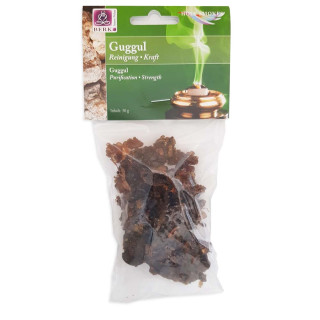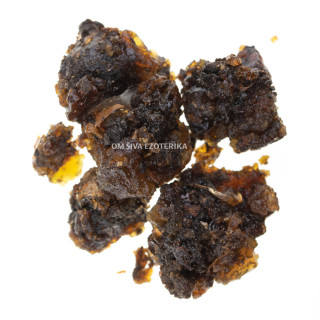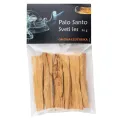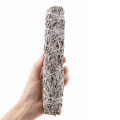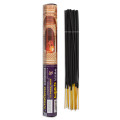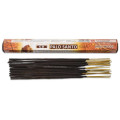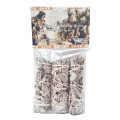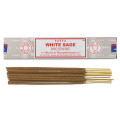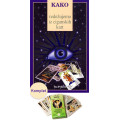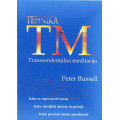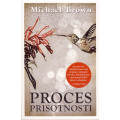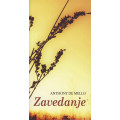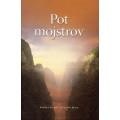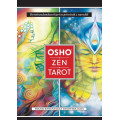Guggul resin incense
Net: 50g
Botanical name: Commiphora mukul
Other names: Common myrrh, bdellium
It is prized in Ayurvedic medicine for rejuvenating the spirit, increasing energy and providing general well-being. According to ancient records from China and India, the tradition of using resin for medicinal purposes is more than 2000 years old. Today it is also used in the field of cosmetics.
Net: 50g
Botanical name: Commiphora mukul
Other names: Common myrrh, bdellium
What is guggul?
Guggul is a small, thorny tree most commonly found in India, in arid climates such as the states of Rajasthan and Gujarat. The resin is obtained from the secretions of trees, which are dried. The name Guggul comes from the Sanskrit name Guggulu, which means "to protect against disease". It is a relative of the African myrrh tree, which is why it is also called Indian myrrh. Guggul resin has a less bitter smell than myrrh from Africa and Arabia.About the scent of guggul
warm, slightly sweet, balsamic, herbal and earthy aroma with a hint of vanillaEffects of guggul
In India, Nepal and Tibet, it is considered one of the most important incense ingredients for cleansing, spiritual and magical purposes. Guggul calms and strengthens the nerves at the same time. As an incense, it cleans the space and fills it with the spirit of expansion and liberation. In India, it is used as an incense in the evening to relax before going to bed. Cleans the air and the body.It is prized in Ayurvedic medicine for rejuvenating the spirit, increasing energy and providing general well-being. According to ancient records from China and India, the tradition of using resin for medicinal purposes is more than 2000 years old. Today it is also used in the field of cosmetics.
How to use
It is used on a smoking briquette or mesh.Incenses with which it catches well
benzoin, dammar, dragon's blood, elemi, frankincenseNo reviews found

